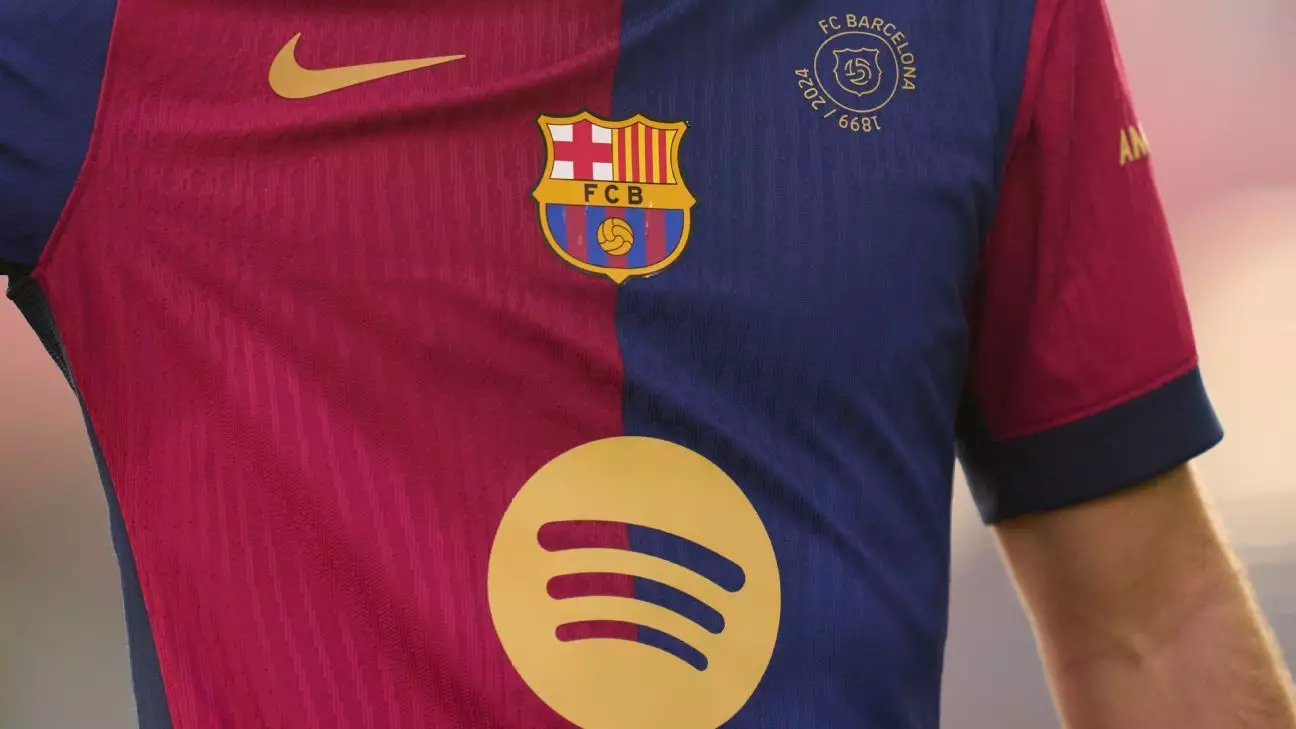In a decisive move that rippled throughout the sports world, FC Barcelona’s members, known as socios, overwhelmingly approved a groundbreaking agreement with sportswear titan Nike during an emergency assembly. While the figures surrounding this multi-year deal remain under wraps due to a confidentiality clause, it has been suggested that it could surpass €100 million ($104.2 million) annually, prior to the consideration of bonuses. This hefty contract not only aims to address the club’s pressing financial issues but also positions it strategically within the competitive football landscape. However, the circumstances prompting such a dramatic meeting raise important questions about transparency and the long-term viability of this partnership.
Joan Laporta, Barcelona’s president, heralded the deal as the most significant financial alliance between a sports club and a kit supplier in history. With 419 votes endorsing the agreement compared to a mere 27 against and 22 abstentions, it’s evident that there’s considerable support within the club for this strategic maneuver. The financial aspect is critical; Barcelona’s debt has ballooned, and the sanctioning of this agreement serves as a beacon of hope in their recovery process. By aligning with a global brand like Nike, the club not only enhances its brand visibility but also stands to acquire much-needed revenue.
Nevertheless, comparisons with rival clubs like Manchester United and Real Madrid highlight a competitive undercurrent. Manchester United’s recent £1 billion deal with Adidas and Real Madrid’s €120 million annual contract with the same company underscore the financial arms race occurring in top-tier football. While Barça’s arrangement potentially bolsters its fiscal position, it raises the stakes—even further—in the relentless pursuit of commercial dominance.
Despite the overwhelming votes in favor of the Nike agreement, the assembly was not devoid of dissent. Many socios expressed their trepidation regarding the lack of clarity surrounding the deal’s specifics, with calls for greater transparency in financial matters. With some members disturbed by the pricing of team merchandise and the influence of agents like Darren Dein—who played a pivotal role in brokering this agreement—there’s an undercurrent of unease. This sentiment ignites a broader debate within the football community about corporate influence and the ethical ramifications tied to such extensive financial deals.
Laporta’s assurances that Dein’s involvement is beneficial may temper some concerns, yet questions linger regarding whether the interests of agents often overshadow those of the clubs and their fans. Achieving fiscal health should not come at the expense of transparency and fan engagement.
While Laporta emphasizes the deal as key for Barcelona’s financial rehabilitation, it is crucial to note that the contract alone will not suffice to navigate the intricate landscape of LaLiga’s financial fair play regulations. With a spending cap of €426 million, and the club reportedly exceeding that limit by €60 million, the agreement’s immediate impact on financial restrictions remains ambiguous. Reports indicate that even with this groundbreaking deal, Barcelona is not yet positioned to formally register key players such as Dani Olmo and Pau Víctor, whose current registrations are set to expire soon.
The urgency of their situation leads to raised eyebrows as the club is exploring various avenues—including potential legal interventions—to resolve pending registration issues. This strategy not only showcases the precariousness of their financial state but also casts a shadow over their long-term planning.
As FC Barcelona embarks on this new chapter with Nike, it must tread carefully on a path filled with both promise and peril. The financial uplift this deal could provide is undeniable, yet the concerns surrounding member transparency, player registrations, and, ultimately, sustainability cannot be overlooked. The upcoming period will determine if this ambitious partnership not only aids their immediate financial recovery but also positions Barcelona for long-term success in a rapidly evolving sports economy. Fans around the world will be watching closely to see whether this iconic club can rise again from the financial ashes, or if it is merely gambling on a temporary fix.

